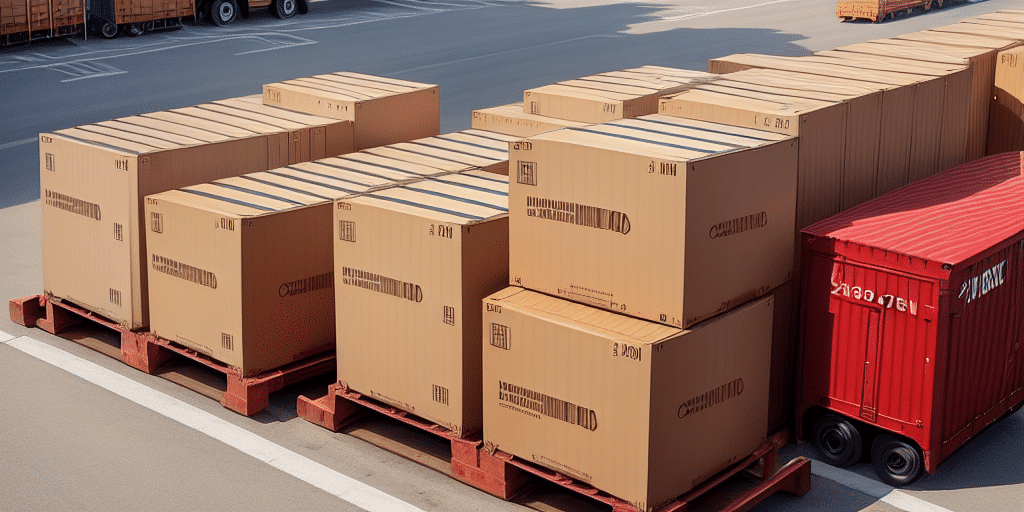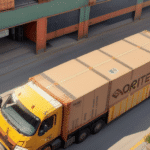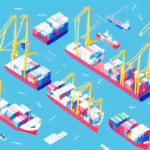Understanding Customs Duties and Fees
When shipping internationally, businesses often encounter customs duties and fees that can significantly impact their shipping costs. These charges are assessed by a country's government on imports and exports, typically based on the value of the goods being shipped. The primary purpose of customs duties is to protect domestic industries by making foreign goods more expensive and less competitive in the local market.
Customs duties and fees can encompass various charges, including taxes, tariffs, and other regulatory fees. These charges vary greatly from country to country, and understanding them is crucial for businesses engaged in global trade.
Managing International Shipping with UPS Worldship
What is UPS Worldship?
UPS Worldship is a comprehensive shipping software solution offered by UPS, designed to help businesses manage their international shipments efficiently. The software allows businesses to create shipping labels, track shipments, and handle customs documentation seamlessly.
Integrating UPS Worldship with Business Systems
Worldship can be integrated with existing business systems, such as inventory management and accounting software, to streamline operations and reduce the risk of errors or delays. This integration ensures that shipping and tracking information is synchronized across all platforms, enhancing overall efficiency.
Factors Affecting Customs Duties and Fees
Product Type and Value
The type and value of the products being shipped play a significant role in determining customs duties and fees. High-value items or goods in demand may attract higher tariffs. For instance, luxury electronics or specialized machinery often incur substantial duties compared to standard consumer goods.
Country of Origin and Destination
Customs regulations and tariff rates vary depending on the country of origin and the destination country. Trade agreements, such as the United States-Mexico-Canada Agreement (USMCA) or the European Union (EU) Common Market, can influence the duty rates and eligibility for reduced tariffs.
Mode of Transportation
The mode of transportation—whether air, sea, or land—can also affect customs duties and fees. For example, air freight may incur higher fees due to faster delivery times and increased security measures compared to sea freight, which, while slower, could be more cost-effective for bulk shipments.
Calculating and Managing Customs Duties with UPS
UPS's Calculation Methods
UPS employs a sophisticated system to calculate customs duties and fees. This system considers the value of the goods, applicable taxes, tariffs, and any special requirements or restrictions. Additionally, UPS takes into account the country of origin and destination to apply the correct duty rates.
UPS Customs Brokerage Services
To simplify the customs process, UPS offers customs brokerage services, managing the clearance process on behalf of the customer. This includes assistance with documentation and ensuring compliance with relevant regulations, thereby minimizing the risk of delays or additional charges.
Impact of Customs Duties on Shipping Costs
Customs duties and fees can significantly impact the overall cost of shipping, often adding anywhere from 5% to 30% or more of the total shipment value. This increase can affect a business's profitability, especially for high-value or bulk shipments.
Understanding and accurately calculating these duties is essential for businesses to price their products competitively in the global market.
Best Practices for Managing Shipping Expenses with UPS Worldship
Utilizing Tools and Resources
UPS Worldship offers various tools, such as the Worldship Duties and Taxes Calculator, that help businesses estimate and manage customs duties and fees effectively. These tools enable businesses to forecast shipping costs accurately and make informed decisions.
Optimizing Packaging
Using optimized packaging options provided by UPS can help minimize shipping costs. Efficient packaging reduces the weight and size of shipments, potentially lowering both the shipping fees and the applicable customs duties.
Understanding Country-Specific Regulations
Each country has unique customs regulations and requirements. By thoroughly researching and understanding these regulations, businesses can ensure compliance and avoid unexpected costs or shipment delays. UPS Worldship provides resources and support to help businesses navigate these complexities.
Avoiding Unexpected Customs Charges
- Accurate Documentation: Ensure that all necessary documents, such as commercial invoices and certificates of origin, are correctly prepared and submitted. Inaccurate or incomplete documentation can lead to delays, additional fees, or even the seizure of goods.
- Staying Informed: Customs regulations and tariffs can change frequently. Staying informed about these changes through reputable sources, such as government trade websites or industry reports, helps businesses adapt their shipping strategies accordingly.
The Importance of Accurate Documentation in International Shipping
Accurate documentation is a cornerstone of successful international shipping. It not only facilitates smooth customs clearance but also ensures compliance with international trade laws and regulations.
Businesses should take meticulous care in documenting the contents, value, and purpose of their shipments. Utilizing UPS Worldship's documentation tools can aid in this process, reducing the likelihood of errors and expediting the customs clearance process.
By thoroughly understanding customs duties and fees and leveraging UPS Worldship's features, businesses can better manage their international shipping costs and avoid unexpected charges. Effective preparation and informed decision-making are key to a profitable and efficient global trade operation.
Additionally, partnering with a reputable customs broker or freight forwarder can provide expert guidance and support, further ensuring that all regulatory requirements are met and that shipments proceed without unnecessary complications.




















